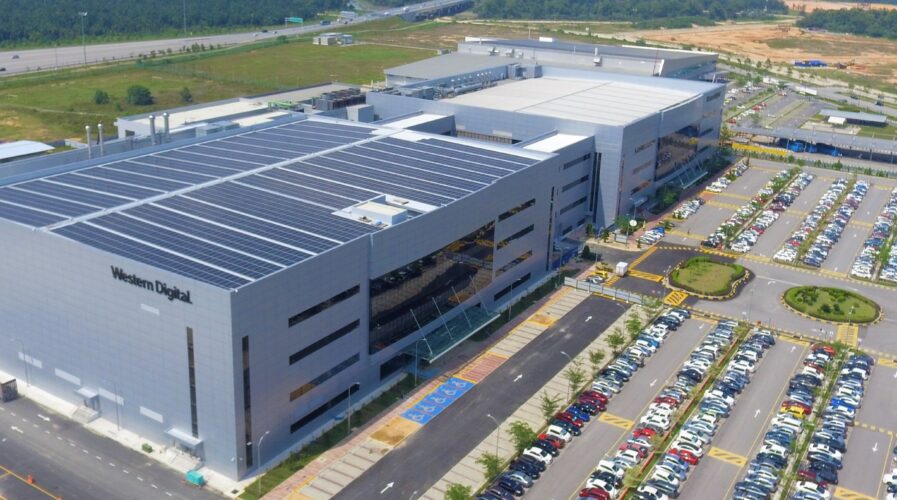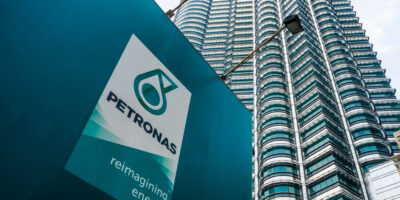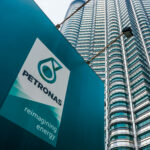
Western Digital factory in Penang (Source – Western Digital)
Western Digital is Asia’s first sustainability lighthouse
According to the World Economic Forum (WEF), the global manufacturing community still lags in its adoption of fourth industrial revolution (IR4.0) technologies. In fact, WEF states that more than 70% of companies are still stuck in pilot purgatory.
With only a select group of leading manufacturers deploying advanced manufacturing at scale, they have been able to generate new value and customer experiences within the factory or across value chains.
In Malaysia, the WEF has recognized and awarded Western Digital’s factory at Batu Kawan, Penang, as a Sustainability Lighthouse. A sustainability lighthouse is a manufacturer that demonstrates the true potential of IR4.0 technologies, transforming the very nature of manufacturing.
The Penang plant leverages its vertically integrated smart factory model and implements IR4.0 technologies such as IoT sensors, digital twin modeling, an analytics-powered plant management system, and lights-out automation with machine learning. The site achieved a normalized (per unit) reduction in energy by 41%, water consumption by 45%, and material waste by 16%, while growing 43% (Compound Annual Growth Rate) in the last four years.
The Penang plant is also the first WEF Sustainability Lighthouse in Asia, and an added designation on top of the site’s earlier entrance into the Forum’s Global Lighthouse Network, a community of 103 world-leading manufacturing facilities and value chains using IR4.0 technologies to increase operational performance and environmental sustainability.
“As the world grapples with many challenges, it is remarkable to see how Lighthouses are yielding sustainability benefits while achieving business goals, which we call eco-efficiency. We need them to continue illuminating the way forward for the global manufacturing community by shaping a responsible future of manufacturing that works for people, society, and the environment” said Francisco Betti, Head of Shaping the Future of Advanced Manufacturing and Value Chains, World Economic Forum.
For Enno de Boer, Partner, McKinsey & Company, and Global Lead of its digital manufacturing work, supply chain resilience and responsible manufacturing matters now more than ever, especially with geopolitical challenges. He added that the 103 lighthouses show how digital technologies drive value chain resilience, growth, and environmental and people sustainability.
“In the past, sustainability and resilience have often come at the cost of efficiency, but that is no longer true. Companies now have a digital playbook and tech tools at their disposal to make their operations more flexible, agile, and sustainable. With these tools, they can amplify human capability, achieve sustainability breakthroughs and accelerate technological innovation, the recipe for smart manufacturing,” commented de Boer.
Meanwhile, KL Bock, Senior Vice President of Global Flash Back-End Operations Western Digital mentioned that the company recognizes the importance and increasing urgency for a collaborative and united effort to combat climate change.
“We are committed to driving sustainability efforts where we operate. This recognition as WEF’s first Sustainability Lighthouse in Asia is a great testimony to the ESG initiatives that we have implemented through the adoption of IR4.0 technologies at our Batu Kawan Penang site, and we will continue to focus and drive momentum in this aspect,” added Bock.
In line with the company’s sustainability goals, the Western Digital Batu Kawan site has implemented various strategies such as the Lights-Out manufacturing concept, which transforms entire manufacturing systems with the use of advanced 4IR technologies. This concept creates an environment where manufacturing processes can operate more efficiently without the lights on, allowing the site to reduce energy consumed per unit produced. The site is also equipped with an advanced Building Monitoring System that is integrated with a proprietary optimizing model to effectively manage the use of energy throughout the facility.
Apart from that, Western Digital is also focused on preserving water and recycling wastewater generated from its operations via a multi-layer recycling system with the use of algorithm-based control models. This enables wastewater to be tested in real-time and converted to re-usable water for operations, reducing the water consumed per unit produced.
When it comes to renewable energy, the facility’s second building is designed and constructed with a roof-top solar farm that generates 1MW/Hr solar energy to supplement the overall energy requirement for the site. These concerted efforts also enabled the site to achieve the Malaysia Green Building Index (GBI) certification.
READ MORE
- Strategies for Democratizing GenAI
- The criticality of endpoint management in cybersecurity and operations
- Ethical AI: The renewed importance of safeguarding data and customer privacy in Generative AI applications
- How Japan balances AI-driven opportunities with cybersecurity needs
- Deploying SASE: Benchmarking your approach


